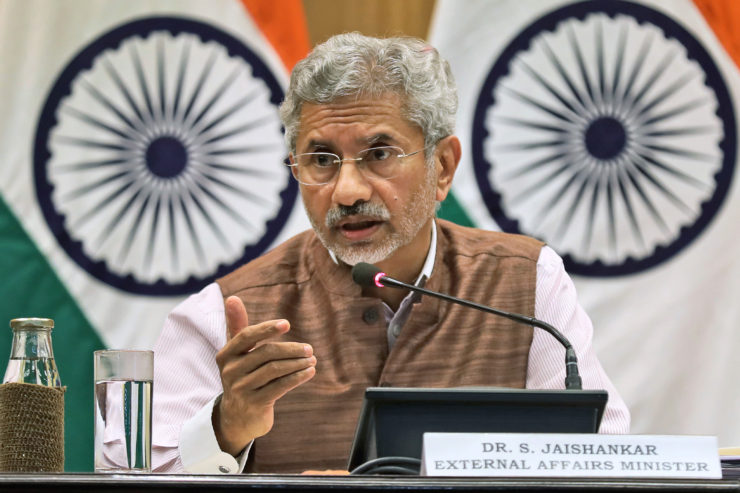
The Indian leadership’s foreign policy has traditionally been characterised by a multi-vector and independent foreign policy, intolerance of any external pressure or imposition of foreign recommendations and advice. New Delhi can afford such an independent foreign policy, given India’s status as a major Asian power, its claim to a certain global role and its self-confidence as the world’s third largest economy. And no major power would dare dictate its terms to India, knowing that such an action would inevitably be met with rejection.
This also applies to the Indo-Pacific region, where the US has a strong position, but this does not prevent India from having its own goals and priorities, but of course within the framework of the quadrilateral agreement on cooperation in the region involving the US, Japan, India and Australia. A certain anti-Chinese bias in the Quartet’s activities does not embarrass New Delhi, which has a territorial dispute with Beijing but is nevertheless trying to improve bilateral relations despite the lack of mutual trust and rivalry. Russia’s efforts to establish a trilateral format of interaction involving India and China have failed, as both powers prefer direct bilateral dialogue without the presence of a third player.
India’s focus on building its own interests was fully confirmed during Indian Foreign Secretary S. Jaishankar’s regular contacts in Seoul and Tokyo in the first week of March 2024. His strategic dialogue with the leaders of these countries once again demonstrated the willingness of the participants to further strengthen cooperation in a wide range of areas, focusing on trade, economics, investment, technology and defence. During the visits, concrete agreements were reached to expand ties in these areas, including in the context of security in the Indo-Pacific region, understandably in tandem with the US and Australia.
While the two sides found common ground in discussing global and regional issues, it is clear that there was certainly no complete agreement on issues such as Ukraine, China and North Korea. New Delhi has its own vision for developing relations with Beijing and Pyongyang, continuing its dialogue with Beijing on existing bilateral issues, including in the BRICS and SCO frameworks, and also engaging with North Korean leaders. There is no doubt that India, in all solidarity with the Indo-Pacific countries on issues of enhancing security, will not join in anti-China or anti-Korea rhetoric and will maintain a restrained and balanced stance.
A separate topic during the talks, apparently not without prompting from Washington, was Ukraine. However, even on this issue, the partners failed to bring India on board and push it into an anti-Russian corner. S. Jaishankar made it clear that India would not join the anti-Russian sanctions and would continue to strengthen its strategic partnership with Russia. At the same time, New Delhi advocates a cessation of military action in Ukraine and a negotiated political settlement of the situation. In short, India continues to take a balanced line on the Ukraine issue and is not in solidarity with the West’s policy towards Russia. However, this does not prevent it from developing cooperation and active dialogue with the United States and other key Western players, as well as with Washington’s allies in the Indo-Pacific region, including Tokyo and Seoul, where the Indian prime minister is scheduled to visit. However, this will only happen after the country’s upcoming general elections, in which the Bharatiya Janata Party (BJP), which has been in power since 2014 and is led by Narendra Modi, has a good chance of retaining power together with its allies. This will be helped by the high authority of the ruling coalition and the Prime Minister himself, as well as the weakness of the opposition forces and, in particular, of the leading party, the Indian National Congress (INC), which lacks a strong, charismatic leader capable of bringing the party back to the helm of the country’s government.
After the parliamentary elections in India and the presidential elections in Russia, a new meeting between the leaders of the two countries is planned to give additional impetus to the successful and dynamically developing strategic relations between Moscow and New Delhi.
Anvar AZIMOV, Ambassador Extraordinary and Plenipotentiary, Senior Researcher, MGIMO, especially for the online magazine “New Eastern Outlook”